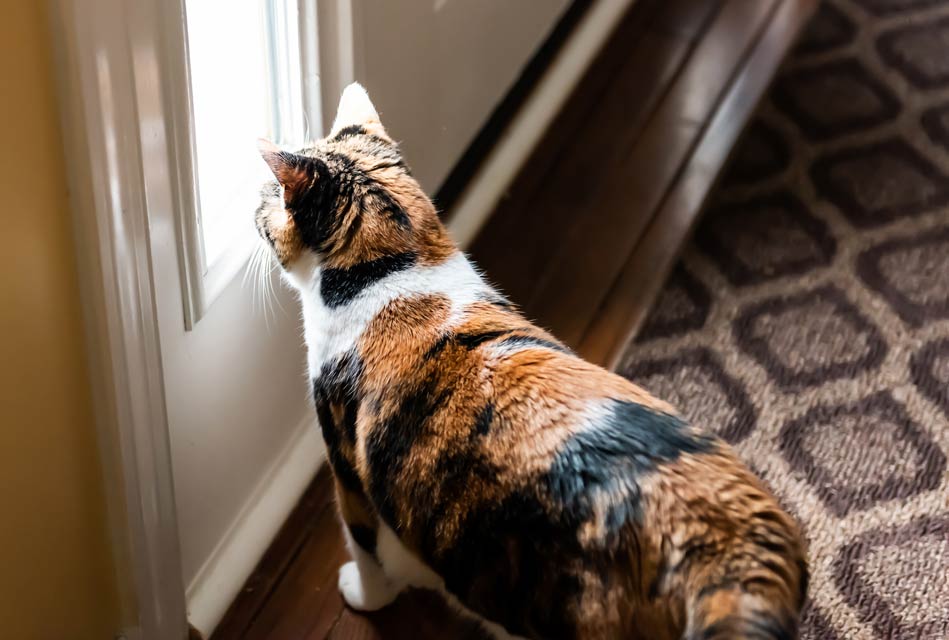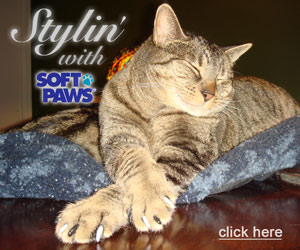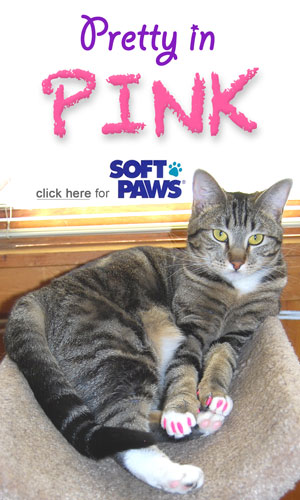- Home
- Does Your Cat Have Separation Anxiety?

Does Your Cat Have Separation Anxiety?

Separation anxiety is a condition discussed most often concerning dogs, but you might be surprised to learn that it can occur in cats as well.
What Is Feline Separation Anxiety?
Separation anxiety in cats is a fear-related condition that leads to a cat being extremely distressed when she is left alone by her humans. Some cats experience separation anxiety even when other cats remain at home with her.
Signs of Separation Anxiety in Cats
Some of the signs of separation anxiety in cats can be signs of other conditions also, so it's important to check with your veterinarian if you see any new signs develop.
- Inappropriate urination that occurs when you're away
- Scratching inappropriate items in the home while the kitty is alone
- Scratching at door or window frames in an attempt to get out when the cat is home alone
- Vocalizing and acting upset, possibly pacing while you're away, often reported by apartment neighbors
- Overgrooming behavior such as licking or chewing at self, often the legs or tummy, to the point of developing hairless areas or open sores
Some of these signs can also be caused by stress or boredom so you might need to be a bit of a detective to determine whether your cat's behavior is due to separation anxiety or something else. Your veterinarian or a veterinary behavior specialist can help.
Why Do Cats Develop Separation Anxiety?
While most cats are okay with being left for a while, a surprising number of them can develop separation anxiety. Some potential triggers for developing separation anxiety include:
- Cat was taken away from the mother at a very young age
- Death or removal of a favored caretaker from the household
- Change in circumstances that causes a drastic decrease in playtime or attention from a favorite caregiver
Why Do Cats Eliminate and Scratch Inappropriate Items When Suffering Separation Anxiety?
Urinating, defecating, and scratching all leave a cat's scent on surfaces, marking their territory. This scent-leaving process is soothing for cats and helps them feel better. That's why stressed, sick, and anxious cats often inappropriately eliminate or scratch.
How to Help a Cat with Separation Anxiety
Before you do anything, take your cat to the veterinarian to be thoroughly checked over for a medical problem. If she checks out okay, here are some things you can try that might help your kitty:
- Environmental enrichment: add scratching posts, cat walks, and hiding spots to the environment, which help your cat blow off steam and feel better by marking territory
- Increase interactive playtime with your kitty, using wand toys to allow your cat to exercise both physically and mentally, indulging her hunting instincts to feel better
- Use puzzle toys to give your cat something to think about and focus on while you're away
- Rotate toys often, so your cat doesn't get bored and start ignoring toys. Be sure not to leave wand toys out, however, because they can be strangulation hazards when your cat tries to play with them unsupervised.
- Try a cat perch near a window, so your cat can sit and watch the goings-on outside. Seeing birds, squirrels, and chipmunks moving around out there can help your cat feel better.
 Use Feliway to help calm your cat. It is a substance that mimics the calming pheromone cats emit from their cheek glands. Use diffusers to saturate the area with these scents, and it might help keep your cat calmer.
Use Feliway to help calm your cat. It is a substance that mimics the calming pheromone cats emit from their cheek glands. Use diffusers to saturate the area with these scents, and it might help keep your cat calmer.
Try Cat TV
Some cats are soothed by having a nature show playing on television while they're home alone. You can try it out to see whether your cat pays attention to it or not.
Some cats need medication to help them get through the roughest part of separation anxiety while you make environmental and other changes. Never give any medications on your own. Always talk to your vet first because cats are highly sensitive to drugs.

 Loading... Please wait...
Loading... Please wait...







